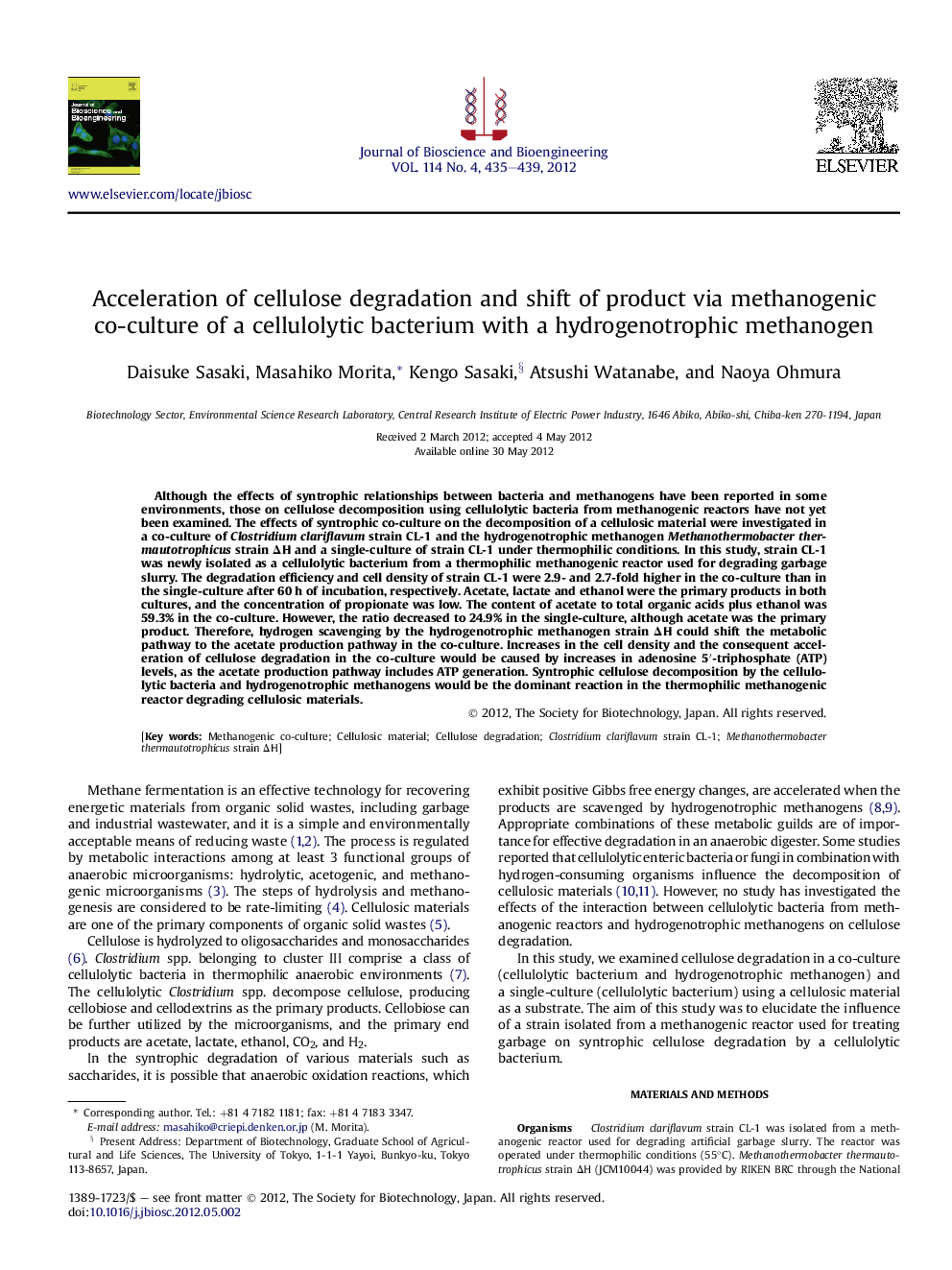| کد مقاله | کد نشریه | سال انتشار | مقاله انگلیسی | نسخه تمام متن |
|---|---|---|---|---|
| 20917 | 43197 | 2012 | 5 صفحه PDF | دانلود رایگان |

Although the effects of syntrophic relationships between bacteria and methanogens have been reported in some environments, those on cellulose decomposition using cellulolytic bacteria from methanogenic reactors have not yet been examined. The effects of syntrophic co-culture on the decomposition of a cellulosic material were investigated in a co-culture of Clostridium clariflavum strain CL-1 and the hydrogenotrophic methanogen Methanothermobacter thermautotrophicus strain ΔH and a single-culture of strain CL-1 under thermophilic conditions. In this study, strain CL-1 was newly isolated as a cellulolytic bacterium from a thermophilic methanogenic reactor used for degrading garbage slurry. The degradation efficiency and cell density of strain CL-1 were 2.9- and 2.7-fold higher in the co-culture than in the single-culture after 60 h of incubation, respectively. Acetate, lactate and ethanol were the primary products in both cultures, and the concentration of propionate was low. The content of acetate to total organic acids plus ethanol was 59.3% in the co-culture. However, the ratio decreased to 24.9% in the single-culture, although acetate was the primary product. Therefore, hydrogen scavenging by the hydrogenotrophic methanogen strain ΔH could shift the metabolic pathway to the acetate production pathway in the co-culture. Increases in the cell density and the consequent acceleration of cellulose degradation in the co-culture would be caused by increases in adenosine 5′-triphosphate (ATP) levels, as the acetate production pathway includes ATP generation. Syntrophic cellulose decomposition by the cellulolytic bacteria and hydrogenotrophic methanogens would be the dominant reaction in the thermophilic methanogenic reactor degrading cellulosic materials.
Journal: Journal of Bioscience and Bioengineering - Volume 114, Issue 4, October 2012, Pages 435–439